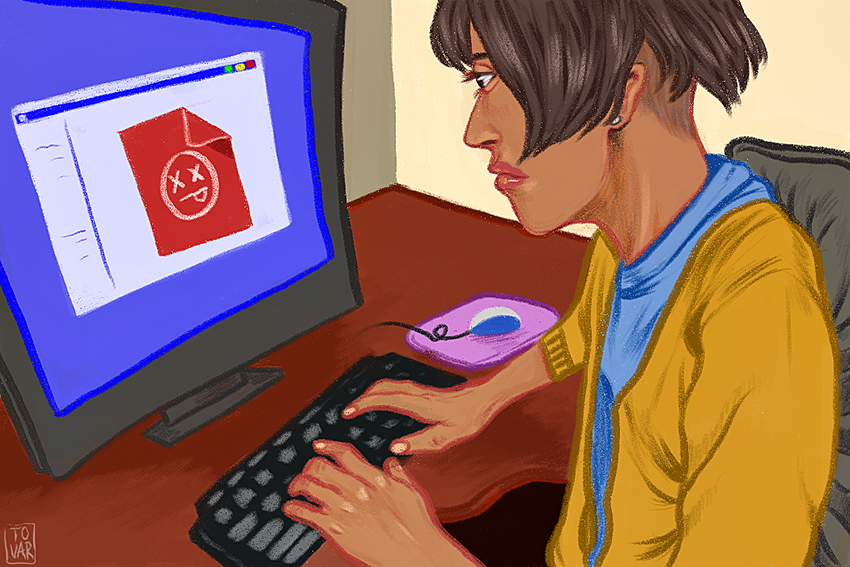- Casen Hunger, an electrical engineering postdoctoral student, and Dr. Mohit Tiwari, UT electrical engineering professor, recently co-founded Privasera, a company that offers app creators and users increased security when saving private documents online.
- Privasera is in the process of releasing their first product, Blox, to the public. Hunger said that Blox prevents mass information leaks by individually storing user data.
- “If a malicious user hacks an application, they will only get access to their own data if an application is running on Blox,” Hunger said.
- The platform works by creating security containers in which every user’s private data files are individually stored. The containers allow different systems with multiple data networks to run on one operating system. Hunger said this allows efficient processing and separation of sensitive data.
- Hunger said that current applications have increased security concerns because all of their users’ data — such as credit card numbers, medical records or social security information — is available through that application at any given time.
- “With Google applications, such as Gmail or Calendar, the app is connected to a certain number of networks including those routing to user data,” Hunger said.
- When an individual opens the app, the application selects the individual’s data file from a list of millions of users. This is a security concern because if the application is hacked, all user data files are available for viewing.
- Hunger said that an application running on Blox will never have all of its users data at one time. Instead the application will only have access to one container holding a single user’s sensitive information.
- Essentially, the platform isolates the data received from the application and selectively sends specific information back when a user needs to access it. Hunger said that because Blox controls security separately from the application, even if the code has bugs, the security level is still uncompromised because the sensitive data is not stored using the application’s functionalities.
- “App developers are not security experts, nor should they be,” Hunger said. “They should be focused on functionality. Leave the security to us, and we will make sure we are HIPAA compliant.”
- HIPAA, Health Insurance Portability and Accountability Act, is a piece of legislation that provides data privacy for medical information and currently limits the growth of online communication between doctors and patients.
- Hunger said that he hopes Blox will be used by clients ranging from amateur app creators to the medical industry. Applications that would typically have to go through a long HIPAA certification process, can instead use Blox to reach markets faster and focus less on security issues.
- In developing Blox, Tiwari and his team created their own applications to perfect their platform. Privasera recently shared Blox with doctors and application start-up companies around the Austin area to test Blox’s functionality.
- Gunalan Karun, an undergraduate lab assistant for Spark Labs, said that applications that store their users’ data online have an increasing need for security. Karun said that markets for application maintenance, security and finances are on the rise.
- “Security has always been an interest of mine, and to be a part of a start-up that has the potential to prevent people from losing sensitive information is a phenomenal feeling,” Karun said.
Categories:
UT start-up to release new online security technology
June 19, 2016
More to Discover















